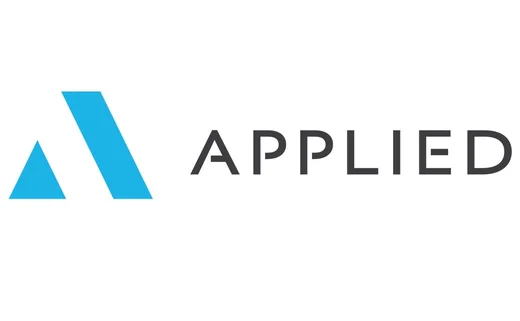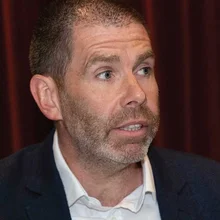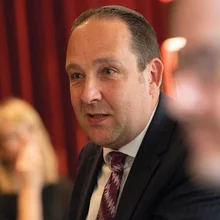
Roundtable: Dealing in data

Data is the lifeblood of insurance, but how is technology and regulation changing its use?

Attendees
Erik Abrahamsson
Founder and CEO, Digital Fineprint
Peter Blanc
Group CEO, Aston Lark
Andy Fairchild
CEO, Broker Network
Paul Firkins
Business development director, Hood Group
Graeme Lalley
CIO, Global Risk Partners
Michael Lawrence
Personal lines director, LV Broker
Chris Moseley
MD Insurance Solutions, Applied Systems
Steve O’Donnell
CIO, Gallagher
Jason Ozin
CIO, PIB
Jeff Purdy
Senior VP of international operations, Applied Systems
How are brokers and insurers using data now?
▶ Erik: We are a start-up so we help insurers and brokers get better at using data. Sometimes we come across horror stories but we also see some people who are really, really good at what they’re doing.
What they all have in common is that they often are looking at data to be a solution to a problem when they haven’t defined the problem yet. So they often come to us and say can you help us get some data? We say yes we can do that, but why? What are you going to be using it for?
▶ Steve: I absolutely agree that you’ve got to know what you’re trying to solve. Are you trying to help create your rating tables because you have built up a claims history? Are you going to look at who are the most profitable clients? But then, if you look at data in terms of artificial intelligence (AI), the whole point of AI is that you don’t actually know the question you’re going to ask before you start analysing the data.
▶ Peter: It is different in personal lines, but in the large corporate market brokers historically have been really poor at using data. Broadly they have just been collating client info and then providing it to insurers in some way to enable providers to actually use the data. Brokers haven’t been really using data at all in the commercial market but that’s changing.
▶ Michael: In personal lines insurance brokers are still using data in a fairly generic homogenised way, and it’s just an arms race of keeping up with the next thing. Having unique data from a broker can help you make decisions.
▶ Jeff: If you think about how brokers use data and look at brokers as part of the value chain then we would suggest data is underutilised. When it is used often it’s looking backwards. People aren’t really using a different data source to get real insight into why something happened and what should be next best action based on the data sets.
Data passes pretty effectively from software house to insurer to enable the transaction to be finished in real time but it doesn’t necessarily extend to the consumer for service purposes. Nor does it necessarily flow well from the insurer to broker on renewal in a really usable way.
They often come to us and say can you help us get some data? We say yes we can do that, but why? What are you going to be using it for?
Erik Abrahamsson

Is legacy a problem?
▶ Paul: Seeing the customer view into our data sets is a real challenge for a lot of brokers, caused primarily, maybe, because of legacy broker systems. It’s probably no surprise that the start-ups are using data in a far more creative and innovative way but for insurers and brokers legacy is a challenge to get away from.
We’re seeing a welcome shift towards looking at what this means for the customer and seeing questions such as ‘how am I improving the customer journey by using data to pre-populate the quotation forms?’
▶ Jason: Because of our last 15 acquisitions we have got legacy systems all over the place. We’ve got a team just bringing data in from all our legacy systems and pulling that into a data warehouse. We’re getting a lot of insights from that.
We can see which of our businesses are doing a better job than the other business units and sharing insights and data. We’re not doing much AI but we are definitely using it for managing information and seeing how our business operates, how it operates well and where it can improve.

How easy is it for brokers to access tools to help them manage and analyse data?
▶ Andy: We’ve invested in tools so we can now take in data from Applied, SSP, Open GI and Acturis and use that for our members to generate their key performance indicators. They can then compare these and create the benchmarks to compare performance.
▶ Steve: There are some really big challenges, you can ask anyone who has mined data, as different systems and different vendors, different teams have different opinions about what things like GWP or revenue actually mean in reality. I wonder if there is some work to be done in the industry to try and be more definitive about what these terms mean, in order for that to work together better.
▶ Jeff: There is a perception that to invest in real analytics tools and apply those against data is out of reach for the average broker. We would think that’s our responsibility as a software house to build and provide those. If broker distribution is going to compete and thrive, that average broker needs to have the same capabilities with some of the larger brokers.
There is a perception that to invest in real analytics tools and apply those against data is out of reach for the average broker
Jeff Purdy

Should there be more standardisation around the transfer of data?
▶ Jason: Even with a broker to insurance relationship with brokers transferring, and checking in their data, there’s no set standard. People are still sending unencrypted Excel spreadsheets. I was surprised there was no set standard.
▶ Chris: There is a necessity to create some industry standards around this.
▶ Steve: In the financial services industry, for example, they’ve all got international standards for doing funds transfers. We don’t have such a thing across the insurance industry and it’s about time that we did.
What can the insurance sector learn from other markets about how it
uses data?
▶ Jason: It’s very obvious that the insurance market is a late adopter. In some respects that’s because the core business needs to be risk averse and doesn’t want to bury a huge amount
of capital into a project that might
go wrong.
▶ Paul: It’s good to get an external view. I would advocate collaboration with partnerships. As an example, we’re based in Essex and we partner with the University of Essex and their Institute of Data and Science Analytics. There is a lot of funding out there for SMEs if you go looking for it.
So we have a data scientist that is two thirds funded by the government effectively that works in our office on a two year knowledge transfer partnership. And at the end of those two years we will have embedded a degree of AI learning into our business.
It’s early days but I don’t think we’ve had a single GDPR request as yet
Peter Blanc

Is it difficult to find the right staff to analyse the data efficiently and effectively?
▶ Erik: It’s always tricky to find the right talent. One bit of advice from a Silicon Valley founder I met recently was there are only two industries that he hires from – video games and advertising – because most advanced technologies tend to start in those and then diffuse out.
Are customers worried about how the insurance market uses their data?
▶ Peter: In the commercial arena no, in the personal arena, yes. It will be really interesting to see. So far it’s early days but I don’t think we’ve had a single GDPR request as yet.
▶ Graeme: GDPR is probably just the beginning and that was quite hard to get our heads around to really prove why we need that data, how we use it, and make clear that we treat it with respect.
▶ Peter: Do you think the regulator is going to step in at some point to actually help the industry define what we can and can’t do? Will we be able to analyse data to such a degree that individuals become uninsurable? In the life sector there are some tests that show an individual will get a disease and they then can’t get life assurance. Then it becomes a societal problem. You can see the same challenges arriving in personal insurance.
GDPR is probably just the beginning and that was quite hard to get our heads around to really prove why we need that data
Graeme Lalley

▶ Paul: There needs to be an underlying code of ethics behind it so that you’re not actually moving away from the whole risk pool and creating a segment of uninsurable people.
The regulator will continue to look into those areas – we’re already seeing it in areas such as people struggling to get travel insurance with a previous condition. There is a lot more we can do to serve that segment of customers.
▶ Michael: You need to set yourself up in a way that says we are going to use customer data for good and we are going to use it fairly and with integrity and keep it secure. Accidents or mistakes do happen but I’d be very disappointed if we were using data in a way that was discriminating.
▶ Andy: Customer trust is fundamental to the principles of our industry. GDPR is about trust and how organisations use personal data. I trust them to use it for either the common good or my good and not to abuse it.
▶ Jeff: We would have a lot of discussions around data applicable uses, appropriate uses, licensing terms, how we protect it, how we actually use it securely when you’re taking the data set from broker management provider and converting it to a platform like ours.
Accidents or mistakes do happen but I’d be very disappointed if we were using data in a way that was discriminating
Michael Lawrence

What are the consequences of a data breach?
▶ Peter: In the personal lines arena it’s huge. You can imagine the reputational damage. It would be pretty horrendous.
It’s still important in commercial lines. There would be reputational damage but arguably it’s less important than in the personal arena because a lot of the company data we hold is not necessarily uniquely held by us.
▶ Jeff: That is a pick your poison question right there and any bad outcome that you can possibly conceive. As a software provider in a cloud culture, we have 90,000 end users in our insurance cloud, so a breach is the thing that will keep us awake.

How will the way the insurance sector uses data change over the next five years or so?
▶ Michael: The regulator will continue to take a real interest in what we’re doing with the data and that’s not just a sole regulator. There’s a number of regulators and interested parties and consumer groups that will take it into focus.
▶ Chris: There will be an increased use of commercial lines. There is going to be more regulation along the way and more collaboration between insurers and third parties.
▶ Graeme: Access to data sources is going to explode over the next five years. We’ve connected everything. That will enable brokers to get insight into every risk and every person that we need to properly rate the future. But then processes and controllers of data are going to have to work really, really hard to prove that they need that data.
Only users who have a paid subscription or are part of a corporate subscription are able to print or copy content.
To access these options, along with all other subscription benefits, please contact info@insuranceage.co.uk or view our subscription options here: https://subscriptions.insuranceage.co.uk/subscribe
You are currently unable to print this content. Please contact info@insuranceage.co.uk to find out more.
You are currently unable to copy this content. Please contact info@insuranceage.co.uk to find out more.
Copyright Infopro Digital Limited. All rights reserved.
As outlined in our terms and conditions, https://www.infopro-digital.com/terms-and-conditions/subscriptions/ (point 2.4), printing is limited to a single copy.
If you would like to purchase additional rights please email info@insuranceage.co.uk
Copyright Infopro Digital Limited. All rights reserved.
You may share this content using our article tools. As outlined in our terms and conditions, https://www.infopro-digital.com/terms-and-conditions/subscriptions/ (clause 2.4), an Authorised User may only make one copy of the materials for their own personal use. You must also comply with the restrictions in clause 2.5.
If you would like to purchase additional rights please email info@insuranceage.co.uk








